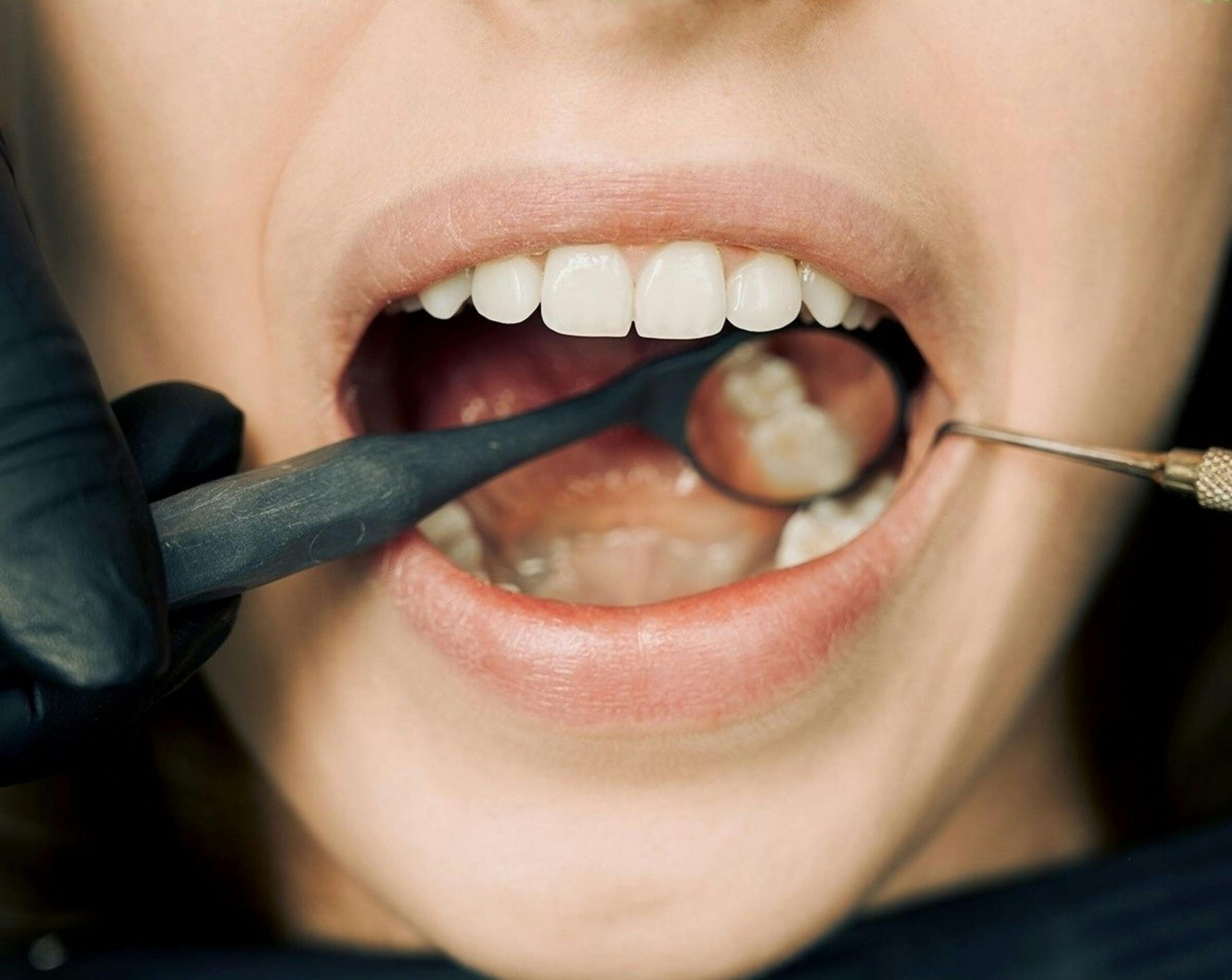Managing Gum Disease and Sensitivity with the Right Toothpaste

Navigating the complexities of gum disease and sensitivity can often feel overwhelming, with a maze of advice and products available. It’s crucial to understand that at the heart of healthy gums versus gum disease lies the careful selection of dental care products, particularly toothpaste. Gum disease can range from simple gum inflammation to serious disease that results in major damage to the soft tissue and bone that support your teeth. Choosing the right toothpaste is not just about fresh breath and white teeth; it’s about employing the right detergents, antibacterial agents, and sensitivity formulas that usually found in sensitive toothpaste to combat receding gums, bleeding gums, and sensitivity, thereby ensuring your gums remain in good health.

We will explore the understanding of gum disease and sensitivity, highlighting the pivotal role toothpaste plays in managing these conditions. You’ll discover how to select the right sensitive teeth toothpaste that addresses both the prevention and management of gum disease gums receding and gum disease bleeding gums. Additionally, we will explore the synergy between using the right toothpaste and adhering to good oral hygiene practices to foster healthy gums and teeth. Equipping yourself with this knowledge can transform your approach to dental care, ensuring you not only fight back against gum disease and sensitivity but also promote long-term oral health.
Understanding Gum Disease and Sensitivity
Causes of Gum Disease
Gum disease, also known as periodontal disease, is primarily caused by the buildup of dental plaque, which harbours harmful bacteria. Factors contributing to gum disease include poor oral hygiene, genetic predisposition, and lifestyle choices such as smoking, which increases plaque on teeth and can lead to gum recession. Additionally, conditions like gingivitis, if untreated, escalate to periodontitis, significantly harming the tissue and bone supporting your teeth.
Symptoms of Sensitive Teeth
Sensitive teeth symptoms are often unmistakable, manifesting as sharp pain or discomfort when consuming hot, cold, sweet, or acidic foods. This sensitivity is frequently due to gum recession, which exposes the tooth’s sensitive root surfaces. Regular dental check-ups and maintaining good oral hygiene are crucial in managing sensitivity and preventing its escalation.
The Role of Toothpaste in Managing Gum Disease
Toothpaste plays a crucial role in managing gum disease by targeting the key factors that contribute to its development. Key ingredients in toothpaste, such as fluoride, triclosan, and essential oils, are instrumental in combating the bacteria that lead to gum disease.
Key Ingredients in Toothpaste for Gum Disease Gums
Fluoride strengthens tooth enamel and reduces the risk of bacterial growth, thereby preventing gum disease gums. Antibacterial agents like triclosan and essential oils such as tea tree oil help kill bacteria in the mouth, reducing plaque buildup. Anti-inflammatory components like baking soda and zinc citrate can alleviate gum inflammation and promote gum health. Additionally, tartar control agents prevent the formation of tartar, a hardened plaque that contributes to gum disease.
How Toothpaste Helps Reduce Plaque and Bacteria
Toothpaste containing enzymes disrupts plaque and inhibits bacterial growth, playing a vital role in maintaining oral hygiene. Ingredients such as sodium lauryl sulfate foster a foaming action that effectively removes bacterial plaque. Moreover, the presence of desensitizing agents like potassium nitrate provides relief for sensitive teeth, often a symptom of receding gums associated with gum disease. Importantly, the promotion of saliva production through ingredients like xylitol helps neutralize acids and cleanse away food residues, further curbing bacterial growth essential for gum health.
By choosing the right toothpaste with these specific properties, you can significantly enhance your oral hygiene routine, effectively managing gum disease and maintaining overall oral health.
Choosing the Right Toothpaste for Sensitive Teeth
Desensitising Agents in Toothpaste
When selecting toothpaste for sensitive teeth, look for key ingredients like potassium nitrate and stannous fluoride, which are critical in managing tooth sensitivity. Potassium nitrate reduces the pain by soothing the nerves in your teeth, offering relief from discomfort caused by temperature changes or other triggers. Stannous fluoride, on the other hand, not only helps in remineralising the teeth but also protects against decay by forming a barrier over exposed dentin, thus preventing pain signals. For those with severe sensitivity, opting for toothpaste with low abrasiveness can prevent further enamel damage.
Brands and Products Recommended for Sensitivity
Dentists often recommend brands like Sensodyne and Colgate for sensitive teeth due to their formulations that include potassium nitrate and stannous fluoride. Sensodyne is particularly noted for its effectiveness in 24/7 protection against sensitivity, making it a top choice among professionals. Colgate’s sensitive range, including the Colgate Sensitive Pro-Relief, is also praised for its dual action in cavity protection and sensitivity reduction. For natural options, Tom’s of Maine offers a fluoride-free toothpaste using arginine and calcium carbonate to block pathways to sensitive nerve endings. Each of these brands provides a variety of toothpaste options tailored to reduce discomfort and enhance oral health in individuals with sensitive teeth.
Combining Toothpaste with Good Oral Hygiene Practices
Importance of Brushing and Flossing
Brushing your teeth twice a day for at least two minutes each session is crucial for removing food particles, plaque, and bacteria that can lead to gum disease gums and tooth decay. Using a fluoride toothpaste and a soft-bristled toothbrush enhances this cleaning process, ensuring your mouth stays fresh and clean. Additionally, flossing at least once a day is recommended to remove debris from areas your toothbrush can’t reach, significantly reducing the risk of gum disease and bad breath.
Additional Oral Care Tips to prevent Gum Disease
To maintain optimal oral hygiene, it’s important to change your toothbrush every 3-4 months or sooner if the bristles fray, which could be a sign of brushing too hard. Experiment with different interdental cleaners like floss, dental picks, or water flossers to find what works best for you, ensuring thorough cleaning between your teeth daily. Regular dental check-ups are also essential, as they help catch potential issues early and keep your oral health on track.
Conclusion
Understanding the role of toothpaste in managing gum disease and sensitivity marks a significant step towards achieving optimal oral health. Our exploration has highlighted that selecting the right toothpaste, equipped with fluoride, triclosan, and potassium nitrate, among other ingredients, is not merely about fresh breath but about fostering the health of gums and teeth long-term. This piece has equipped you with the knowledge to discern what makes for effective toothpaste, bridging the gap between everyday oral care and the prevention and management of gum-related conditions.
Embracing the insights shared can transform your oral hygiene routine into a powerful defense against sensitivity and gum disease. Remember, combining the selection of the right toothpaste with diligent brushing and flossing amplifies your efforts in maintaining oral health. On this journey towards healthier gums and teeth, consider your choice of toothpaste as a pivotal ally. Let this understanding guide you in making informed decisions, reinforcing the importance of attentive oral care practices synergized with the right products.
FAQs
1. What toothpaste should I use if I have sensitive teeth and gum disease?
For those suffering from sensitive teeth and gum disease, Sensodyne Sensitivity and Gum toothpaste is recommended. Sensodyne gum care It is designed to build a protective layer over sensitive areas while also removing plaque and bacteria, thus supporting gum health.
2. Which toothpaste is recommended for improving gum health?
Parodontax toothpaste is clinically proven to help improve gum health effectively. It can be said as one of the best toothpaste Singapore.
3. How can I reduce both gum and tooth sensitivity?
Sensodyne Sensitivity & Gum toothpaste is specifically formulated to address both issues, both sensitive teeth and gum disease receding gums. Its low abrasion formula n
ot only builds a protective layer over sensitive areas but also targets and removes plaque bacteria, aiding in the reduction of gum disease swollen gums and bleeding gums.
4. What is the best toothpaste for sensitive teeth available in Singapore?
In Singapore, Sensodyne Sensitivity & Gum toothpaste is highly recommended for sensitive teeth. It is clinically proven to relieve tooth sensitivity and enhance gum health through its dual-action formula, which should be used twice daily for optimum results.


